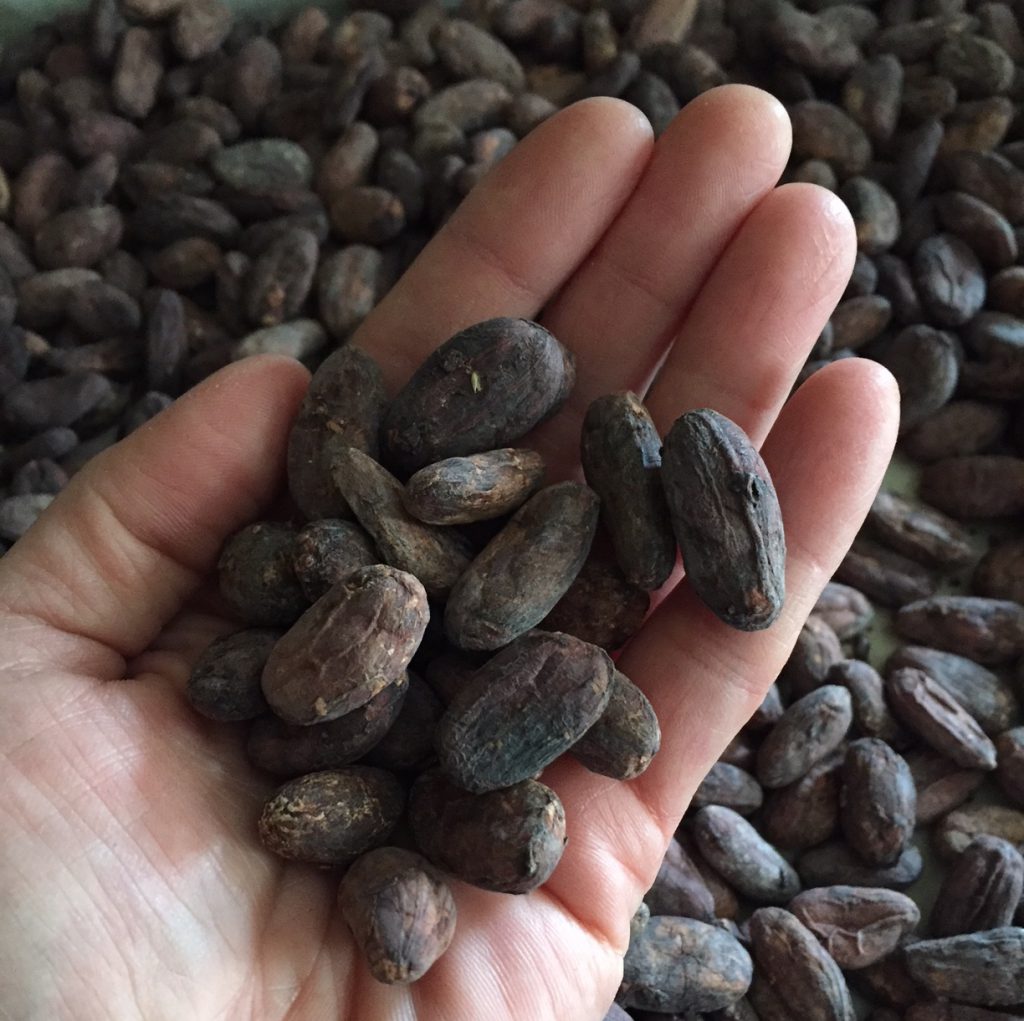The Beans
Chocolate wouldn’t be chocolate without cacao. There is so much we could say about cacao. In the immortal words of the Princess Bride’s Inigo Mantoya: “Let me explain… no, no, there is too much, let me sum up.”
Cacao is a fruit, so like other fruit, the flavour is affected by the variety and the place in which it grows (terroir). Cacao beans are also fermented and dried before they are transported, which is also a stage where the flavour can be affected. To get the best flavour, you need farmers and fermenters who care and are wiling to invest in their beans. And, like all other things, for them to invest, they need to see that their work is valued.
In the typical commodity supply, there are often multiple middle people through whom the beans pass before they get to the big companies, whose goals are often to get the most beans for the lowest price rather than the best beans. This has led to many problems, perhaps the worst being child slave labour. In the commodity system, it is difficult to track the beans of a batch of chocolate back to the farmers, so it is hard to know what the conditions of cacao farmers and children are.

Changing the system is part of why we make chocolate. We value our cacao farmers and want to know that they are making real wages for their work. However, we ourselves are not in a position to be able to travel and import beans, so we do the next best thing. We work with suppliers who do have relationships with the farmers and fermenters. We look for people who provide transparency and whose supply we can follow and visit to ensure that farmers make real wages. We do pay more for our beans, but that means that cacao becomes a meaningful crop for the farmers and processors. It means they can invest more in their cacao. In turn, this means you get better chocolate!
The Origins
We currently have beans from four origins sourced through three different suppliers.
Tanzania
Our Tanzanian beans come from Kokoa Kamili via Meridian Cacao. Kokoa Kamili is a co-operative that works with over 3,000 farmers in the Kilombero Valley of Tanzania. Kokoa Kamili buys wet beans well above local market rates, provides seedlings and offers agronomy support and education to farmers.
Ecuador
Our Ecuadorian beans come from Camino Verde via Meridian Cacao. Camino Verde is a private fermentary in Duran, Ecudaor. Vincente Norero, its owner/operator began as an estate cacao farmer himself. Now, his farming and harvesting program guarantees better prices for the farmers, who in turn grow better, healthier cacao plants.
Peru
Our Peruvian beans come from Pangoa via East Van Roasters. The Pangoa Coop that works with farmers in the Pangoa and Ene River Valley regions. The Cooperative is promoting the growth of the indigenous criollo variety over other varieties that are often grown for productivity over flavour or heritage. East Van Roasters is an inspiring chocolate and coffee roaster in Vancouver. They work with women in the Downtown Eastside who work to make excellent chocolate and coffee!
Colombia
Our Colombian beans come from the Arhuaco Indigenous community via Uncommon Cacao. The Arhuaco are an Indigenous nation of the protected territory of the Sierra Nevada de Santa Marta Mountains, Colombia. To resist extractive development, the Arhuacos have created a livelihood that includes sustainable agriculture and cacao cultivation, in harmony with the natural ecosystem.